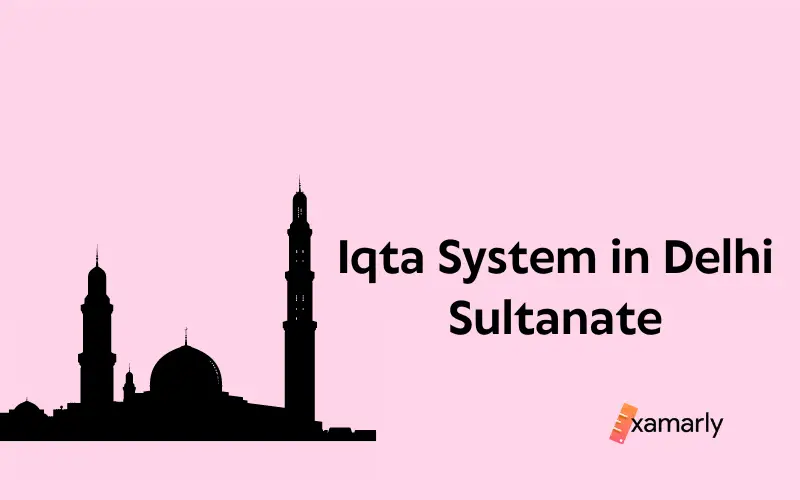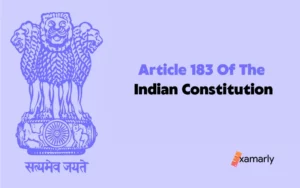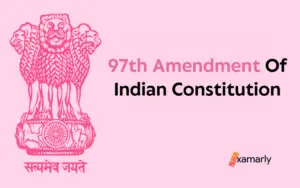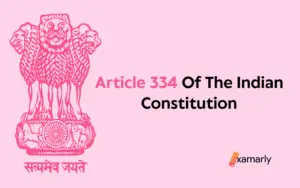

Understanding the Iqta System Under the Delhi Sultans
by Prince Kumar | Dec 31, 2023
Imagine a time when land was currency, and the might of an empire depended heavily on how this currency was managed. This was the essence of the iqta system , a unique method of administration and revenue collection, which played a pivotal role in the expansion and consolidation of the Delhi Sultanate . Let’s journey back to the era of the Delhi Sultans and unravel the intricacies of the iqta system, understanding its origins, functions, and the transformative impact it had on medieval Indian polity and society.
Table of Contents
Origins and essence of the iqta system
The iqta system, although not a novel creation of the Delhi Sultans, was certainly refined and tailored by them to suit the vast and diverse territories under their control. Initially, the system was an innovative approach to governance adopted by the Muslim rulers preceding the Delhi Sultanate, but it was during the Sultanate era that it became a cornerstone of administration.
Functioning of the iqta system
The iqta system was essentially a form of land grant which involved the distribution of provinces or regions, called iqtas, to nobles, military officers, or administrators, known as muqtis or walis . The responsibilities of the iqta holders were twofold:
- Revenue collection: The iqta holder was tasked with collecting taxes and revenues from the land assigned to them. These revenues were not only agricultural but also included various other forms of levies.
- Military and administrative obligations: In return for the iqta, the holder was obliged to maintain a certain number of cavalry and foot soldiers to support the Sultan when called upon. They also had to ensure proper administration and justice in their respective territories.
Centralization of authority
By the 14th century, the Delhi Sultans began making changes to the iqta system to curb the autonomy of iqta holders and centralize authority. This involved periodic transfers and revocation of iqtas, which prevented the holders from establishing roots in their assigned territories and challenging the Sultan’s power.
Introduction of cash salaries
Another significant change was the gradual shift from payment through land revenue to cash salaries for the military. This was a strategic move to weaken the power base of the iqta holders and to bring the military directly under the Sultan’s control.
Transition towards hereditary rights
Despite efforts to centralize authority, there was a gradual transition towards hereditary rights under the rule of Firuz Tughlaq . He relaxed the stringent regulations and allowed iqta holders to pass on their rights to their heirs, which eventually led to the feudalization of the iqta system and diluted the Sultan’s control over his territories.
Impact on the administrative structure of the Delhi Sultanate
The iqta system had a profound impact on the administrative structure of the Delhi Sultanate:
- Emergence of a new ruling elite: The system gave rise to a class of powerful landholders who played a crucial role in the political and military spheres of the Sultanate.
- Revenue efficiency: By incentivizing iqta holders with the right to collect revenues, the system ensured efficient tax collection and resource allocation which was essential for the maintenance of the Sultanate’s large armies.
- Regional administration: The iqta system also decentralized administration, empowering local iqta holders to make decisions suited to regional needs while still upholding the Sultan’s overarching policies.
The iqta system under the Delhi Sultans was a remarkable blend of fiscal, military, and administrative practices that fueled the expansion and governance of an empire. While it was instrumental in consolidating territories, it also set the stage for regionalism and fragmentation as iqta holders grew in power. The evolution of the iqta system reflects the dynamic nature of medieval Indian politics and its ability to adapt to changing circumstances.
Reflect on the past: How do you think the iqta system compares to modern methods of administration and governance? Can we draw parallels between the challenges faced by the Delhi Sultans in centralizing authority and those faced by contemporary governments?
The legacy of history: In what ways do you see historical systems like the iqta influencing current land and revenue policies in various parts of the world?
How useful was this post?
Click on a star to rate it!
Average rating 0 / 5. Vote count: 0
No votes so far! Be the first to rate this post.
We are sorry that this post was not useful for you!
Let us improve this post!
Tell us how we can improve this post?
Submit a Comment Cancel reply
Your email address will not be published. Required fields are marked *
Save my name, email, and website in this browser for the next time I comment.
Submit Comment

History of India C.1206-1707
1 Trends in History Writing
- Arabic and Persian Historic Traditions
- Political Chronicles: Delhi Sultanate
- Political Chronicles: Mughals
- Insha (Epistolography) Tradition
- Official Documents
- Sufi Writings
- Foreign Travellers’ Accounts
- Regional History Tradition
2 Foundation, Expansion and Consolidation of Delhi Sultanate
- Conflict and Consolidation 1206-1290
- The Mongol Problem
- Political Consequences of the Turkish Conquest of India
- Expansion under the Khaljis
- Expansion under the Tughlaqs
- Nature of State
3 Provincial Kingdoms
- Emergence of Regional Powers: Some Theories
- Central and Eastern India
- Northern and Western India
- Regional States and Legitimization
4 Vijayanagar and Deccan States
- Geographical Setting of South India
- Establishment and Consolidation of the Vijaynagar Empire
- Religion and Politics under the Vijaynagar Empire
- Local Administration under the Vijaynagar Empire
- Nature of the Vijaynagar State
- Rise of the Nayak Kingdoms
- Rise of the Bahmani Power
- Conflict between the Afaqis and the Dakhnis and their Relations with the King
- Central and Provincial Administration under the Bahmani Kingdom
- Army Organization under the Bahmani Kingdom
- Political Formations in the Deccan
5 Early Mughals and Afghans
- The Lodi Empire
- Administrative Structure
- Political Scenario on the Eve of Babur’s Invasion
- Central Asia and Babur
- Foundation of Mughal Rule in India
- Humayun: 1530-1540
- The Second Afghan Empire in India: 1540-1555
- Revival of Mughal Rule in India
6 Mughal Polity – Akbar to Aurangzeb
- Power Politics and Regency of Bairam Khan: 1556-1560
- Territorial Expansion under Akbar
- Administrative Reorganization
- Territorial Expansion under the Successors of Akbar
- Policies towards Autonomous Chieftains
- Mughals-Rajput Relations
- Mughals and the Deccan States
7 Administrative Structure
- The Caliphate and the Delhi Sultanate
- Nature of Administration under the Delhi Sultanate
- Central Administration under the Delhi Sultanate
- Provincial Administration under the Delhi Sultanate
- Administration under Sher Shah
- Central Administration under the Mughals
- Provincial Administration under the Mughals
- Local Administration under the Mughals
- Town Qila and Port Administration
- Nature of Mughal Administration
8 Army Organization and Mansab System
- Army Organization of the Delhi Sultans
- Army Organization of the Mughals
- Mansab System
- System of Escheat
9 Iqta and Jagir
- Iqta System
- Jagir System
- Various Types of Jagirs
- Management of Jagirs
10 Land Revenue
- Land Revenue and Its Extraction under the Delhi Sultans
- Mughal Land Revenue System
- Currency System of the Delhi Sultans
- Currency System of the Mughals
11 Rural Society
- Agricultural Production during the Delhi Sultanate
- Agrarian Relations in the 13-14th Centuries
- Agricultural Production: Mughal India
- Crops in Mughal India
- Cattle and Livestock
- Agrarian Relations: Mughal India
12 Inland Trade
- Trade and Commerce under the Delhi Sultanate
- Trade and Commerce under the Mughals
- Personnel of Trade and Commercial Practices under the Mughals
- Merchants Trading Organizations and the State
13 Oceanic Trade
- Oceanic Trade under the Delhi Sultanate
- Imports and Exports
- The Portuguese Advent
14 Technology, Craft Production and Social Change
- Agricultural Technology
- Textile Technology
- Building Construction
- Military Technology
- Shipbuilding
15 Towns, Cities and Growth of Urban Centres
- Growth of Towns during the 13-15 Centuries
- Urban Manufactures during the Sultanate Period
- Urban Landscape under the Mughals
- Composition of Population (Urban Classes)
- Urban Demography
- Urban Life: Standard of Living
16 Bhakti and Sufi Traditions
- Background: Bhakti Movement in South India
- Bhakti Movement in North India
- Salient Features of Sufism
- Sufi Orders in India during the Sultanate Period
17 Architecture and Painting
- Architecture under the Delhi Sultanate
- Mughal Architecture
- Paintings under the Delhi Sultanate
- Mughal Paintings
18 Women and Gender
- Women and Gender during the Era of Delhi Sultanate
- The Mughal Harem and the Position of Women
- Women’s Agency During the Later Mughal Period
- Women in Medieval Bengal
Share on Mastodon

Iqta System In Delhi Sultanate

Do you want to know about the Iqta system in Delhi sultanate ? The Indian land tax system changed considerably after the reign of Mohammad Ghori . The subsequent formation of the Delhi Sultanate brought in many administrative changes.
The Iqta system in Delhi Sultanate is a political, administrative, and agrarian system that was prevalent throughout the Sultanate. It had its roots in the Turko-Afghan political structure. It originated as an Arabic custom and later the Turks adopted it and then carried it to India.
Till that time, the basic type of Hindu land tenure as per old Manu’s rules existed. The introduction of the Iqta system supplied the country with an agricultural economy.
It also gave the members of the ruling elite the advantage of obtaining money without any permanent commitment to any area.
This system introduced by Iltutmisht later became the backbone of the Delhi sultanate administration. In this article, we will brush through how the system helped in administration. Read on to learn more.
What Is Iqta?
Introduction of iqta system of delhi sultanate, what is iqta system, who is an iqtadar, role of an iqtadar, evolutions of the iqta system in delhi sultanate, contributions and pros of the system, cons of the system, what is the iqta system in delhi sultanate, who abolished the iqta system, when was the iqta system introduced in delhi sultanate, what was the purpose of the iqta system in delhi sultanate, how did the iqta system work in delhi sultanate, who were the beneficiaries of the iqta system in delhi sultanate, did the iqta system exist in other parts of the world, was the iqta system successful in delhi sultanate, what were the limitations of the iqta system in delhi sultanate.
Iqta refers to land and the Kharaj (land revenue) is assigned to a person under particular conditions. The revenue systems of the Turkish Sultans rested on Iqta and Kharaj.
This system supplied the country with an agricultural economy, while members of the ruling elite obtained the money without any permanent commitment to any area. An Iqta was originally decided based on one’s salary.
Under the reign of Firoz Shah Tughlaq, it changed to be hereditary. In essence, it was the land that the army officials got in exchange for their military services.
This system was first introduced to India in 1206 AD by Muhammad Ghori. But, it was Iltutmisht who managed to give it an institutional form.
An innovative system for the distribution of pieces of land and governmental organization emerged under Iltutmish’s rule.
The Delhi Sultanate’s territories were divided into many small and large sections known as Iqta. These Iqtas were given to Sultan’s trusted officials, nobles, and warriors for administration.
Iqtas are of two types:
- Big – Big Iqta was administered by either important wealthy nobles or army officials. They were held by province governors who also had administrative responsibilities.
- Small – Small Iqta holders were small troop holders with no administrative obligations. These minor holders owned and appropriated all of the cultivators’ money. But they were obligated to show themselves with horses and weaponry whenever the Central Government called. Khuts and Muqaddams were the names given to these little Iqta bearers.
Iqtadar or Muqti was the title given to the person who owned the Iqta. He had the authority to manage and recoup the entire revenue from the Iqta.
The Diwan-I Wizarat was tasked with calculating the tax income (kharaj) from each Iqta. The chiefs of an Iqta were also called Naib Sultan, Nazim, or wali.
Every Iqta was led by an experienced commander, generally a member of the royal family or a famous Amir (noble) and loyalist.
- He was supervised by the Central Government. He carried out Sultan’s orders. His authority within the province was like the authority the Sultan had in his empire.
- He kept enormous forces and was compelled to dispatch them when the Sultan asked. He assigned warriors to his army.
- He collected taxes from the people who lived in his domain.
- He kept the land under his command in order and safeguarded the people’s lives and possessions.
- He spent the income received on the upkeep of his troops, his pay, and other administrative expenses, and put the rest in the state treasury. He submitted an annual report of his income and expenses.
Let us look at how the practice of the Iqta system and the assignment of land revenue changed over time. This can be noted under the reign of various rulers of the Delhi Sultanate.
- Mohammad Ghori – The system was initially launched by Mohammad Ghori.
- Shamsa ud-Din Iltutmish – The system was first effectively structured by Sultan Iltutmish . He provided a thorough explanation of the Iqtadar’s responsibilities. Under the new organizational structure, the Iqtadar was in charge of maintaining certain troop levels, overseeing the administration of the territory they controlled, bringing in money, and depositing Fawazal into the central treasury.
- Ghiyas ud din Balban – Sultan Balban tightened central authority over Iqtadars. He sent an accountant Khwaja to each Iqtadar to verify the authenticity of their records. Balban moved Iqtadar from one Iqta to another, preventing the officer in charge from forming bonds with others.
- Alauddin Khalji – To expand Khalisa territory, Sultan Alauddin Khilji (Ala-Ud-Din Khalji) dissolved the small Iqtas that were present in the Doab province. He enhanced Iqtadar’s revenue demands. Diwan-i-Mushtkharaz, a new department, helped to collect tax debt from residents of Iqtadar.
- Mohammad Bin Tughlaq – He further tightened central control over Iqtadar. Muhammad Bin Tughlaq segregated Iqtadar’s income and expenses. They directed that all revenue be deposited in the treasury of the central government, which is where they received payment for their salaries and other expenditures.
- Firuz Shah Tughlaq – The system became hereditary under Firoz Shah Tughlaq Iqta’s rule. Iqtadar’s widow, son, son-in-law, or slave was allowed to succeed after his passing.
- Lodhi reign – The idea of Fawazal was abandoned during the Lodhi era. The Iqtadar permitted the keeping of the money derived from the Iqta. As a result of Sultan’s position as the first among equals, Afghan control in Lodhi was prolonged. Iqta became Sarkar and Pargana. Greater Iqta became known as Sarkar and smaller Iqta as Pargana.
Related Posts:
- Firoz Shah Tughlaq: 1st to Table the Canal Irrigation
- Bahlul Lodi: First Sultan Of The Lodi Dynasty
- Nasir Ud Din Mahmud Shah Tughluq
- Ghiyas Ud Din Tughlaq
The Iqta system helped in the growth and strengthening of the of Turko-Afghan powers. The Sultan is no longer responsible for anything owing to the system.
It allowed the commander to command every duty that fell under his jurisdiction. Maintaining good central control became possible since the Iqtadar central officer was directly answerable to the Sultan.
The system increased performance and achievements since the top-performing commander received Iqta as payment.
It aids in imperial expansion since Iqtadar used to lead military expeditions against nearby Independent nations on Sultan’s behalf. Due to the division of labour in maintaining soldiers between Iqtadar, the arrangement also made it easier to maintain a huge army.
Also, the fact that Iqtadar used to receive taxes and deposit them in the royal treasury strengthens the Sultanate’s economic structure. By designating the ambitious Nobel as Iqtadar in various locations, the system maintained the capital free from conspiracies held by strong commanders.
The system helped in maintaining trustful agents. Also, the system gives talented commanders the chance to use their power for the welfare of the state.
It enhanced the ease of revenue collection. It also helped keep a balance between administrative expenditures and military expenditures. In totality, it made notable changes in revenue & administration and led to a long-lasting agrarian reform.
The Iqta system ran smoothly under the reign of any strong Sultan. But, when a weak or greedy Sultan takes the throne, problems inevitably arise.
A large number of Iqtadar proclaim their freedom from Sultan after the passing of a powerful monarch. To safely take control, the new Sultan has to put out a lot of effort.
Iqtadar in charge possessed vast financial and military resources. They were constantly able to reject the weak Sultan’s orders.
The centrifugal effect becomes prominent when the Iqta system becomes hereditary. Firoz Shah Tughlaq did this and it significantly led to the downfall of the Tughlaq dynasty.
The Lodhi Iqta method got much more difficult once Lodhi ceased collecting Fawazal from Iqtadar. Some Lodhi Iqtadar in Punjab who planned to grab control were defeated.
The Iqta system as an original form of collection and assessment of revenue was effective. It had the additional benefits of contributing to the administration and maintenance of a strong reign and army.
It also had considerable control of markets and even initiated an agrarian revolution. Yet, the success of the system or its institutional status depended a lot on the ability of the ruler to extend effective control and the reliability of the Iqtadar.
Nevertheless, this earlier practice is a must-know for all UPSC aspirants. Hope you have a better knowledge of how the Iqta practice influenced the administration of the Delhi Sultanate.
The Iqta system was a land revenue system introduced in the Delhi Sultanate. It granted the right to collect revenue from a specific area of land to a military officer or noble in exchange for military service or other duties to the Sultan.
In order to unify the small fiefs under centralized rule, Alauddin Khilji abolished the Iqta system.
The Iqta system was introduced during the early Delhi Sultanate period in the 13th century by Sultan Shamsuddin Iltutmish.
The Iqta System in Delhi Sultanate was introduced as a way to mobilize the military power of the state and to maintain a regular army. It was also used as a means of revenue collection for the state.
Under the Iqta System, the Sultan granted the right to collect revenue from a specific area of land to a military officer or noble in exchange for military service or other duties to the Sultan. The Iqta holder would then be responsible for the administration of the area and the collection of revenue.
The beneficiaries of the Iqta System were military officers and nobles who were granted the right to collect revenue from a specific area of land in exchange for military service or other duties to the Sultan.
Yes, the Iqta System was also prevalent in other parts of the Islamic world, such as the Abbasid Caliphate and the Mughal Empire.
The Iqta System was successful in mobilizing the military power of the state and in maintaining a regular army. It was also effective in revenue collection. However, the system had its limitations and was eventually replaced by the Jagir system.
The limitations of the Iqta System in Delhi Sultanate included the lack of a permanent administrative structure and the tendency of the Iqta holders to misuse their powers.
Related Posts

Delhi Sultanate Dynasty: Medieval Indian History

Article 183 Of The Indian Constitution

97th Amendment Of Indian Constitution

Article 334 Of The Indian Constitution

IMAGES
VIDEO
COMMENTS
The Iqta' system was later reorganized by Balban, who divided his empire into small pieces of land and opposed making Iqta hereditary. His absolutist rule concentrated on limiting the power of the estates (mainly the nobility and merchants) and securing his supreme authority as the king.
Despite efforts to centralize authority, there was a gradual transition towards hereditary rights under the rule of Firuz Tughlaq. He relaxed the stringent regulations and allowed iqta holders to pass on their rights to their heirs, which eventually led to the feudalization of the iqta system and diluted the Sultan’s control over his territories.
However, the grant of an iqta did not confer ownership of the land, nor was it hereditary. Although, during Firuz Tughlaq’s reign, some iqta holders began to acquire hereditary rights, this was not the norm.
Under Iqta System, the land of the empire was divided into several large and small tracts called Iqta and assigned these Iqtas to his soldiers, officers and nobles. In the beginning, an Iqta was based upon salary. Later, under Firoz Shah Tughlaq it became hereditary.
During the reign of Firoz Shah Tughlaq Iqta, the system was declared hereditary. After the death of Iqtadar, his son/son-in-law/slave/widow was allowed to succeed. During the Lodhi period, the concept of Fawazal was abolished. The Iqtadar allowed retaining the revenue collected from Iqta.
The Iqta' system was later reorganized by Balban, who divided his empire into small pieces of land and opposed making Iqta hereditary. His absolutist rule concentrated on limiting the power of the estates (mainly the nobility and merchants) and securing his supreme authority as the king.
The bearers of Iqta tended to get hereditary privileges throughout Firuz Tughlaq's reign. The Iqta holder was moved every three to four years from one region to another, and these revenue assignments were transferrable.
The history of the Iqta system can be traced back to the establish-. ment of the Delhi Sultanate in northern India. The early sultans assigned iqtas to their nobles for their maintenance instead of cash salaries. The nobles who were assigned small iqtas were called iqtadars.
Although these assignments were transferable, under Tughluqs, especially Firoz Shah, they were more or less became hereditary. This trait of assignment system was in existence in pre-Sultanate Gujarat. In 1400, Malik Badr was muqti of Sorath and in 1403-04, his son Malik.
The Iqta system in Delhi Sultanate is a political, administrative, and agrarian system that was prevalent throughout the Sultanate. It had its roots in the Turko-Afghan political structure. It originated as an Arabic custom and later the Turks adopted it and then carried it to India.